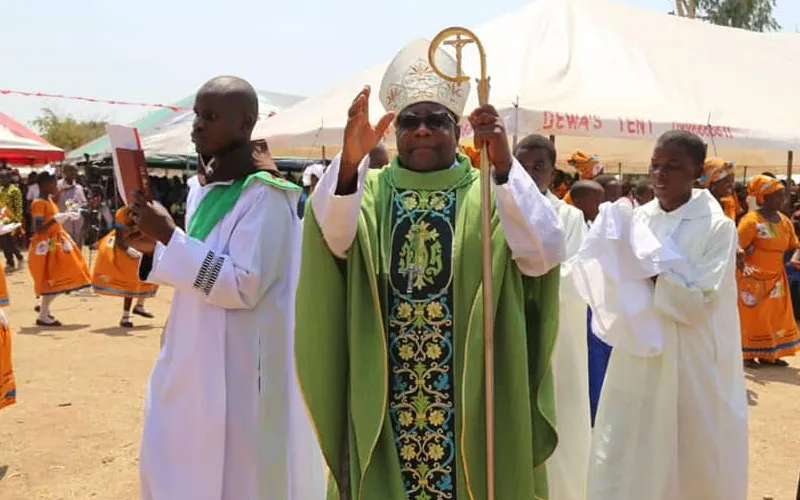The Bishop echoes the sentiments of the members of the Episcopal Conference of Malawi (ECM) who have expressed concern over the worsening food security crisis in the country and called on the country’s ruling Tonse Alliance to act fast to tame the hunger in line with their election promises.
Earlier this month, the ECM members issued a pastoral statement titled, “A Call to Hearken to the Cry of Poor Malawians”, expressing regret that the government’s promises of a better Malawi “are far from being realized” in a country where people continue to grapple with worsening inflation, and biting food price increases, among other challenges.
“We painfully recall that when slightly over two years ago we went to the polls and ushered in a new government we did so on the premises of what we thought were credible campaign promises of a new Malawi coming our way. Regrettably, and this seems to be the verdict of many sober Malawians, the much-touted promises of change are far from being realized,” Catholic Bishops in Malawi said in their October 10 statement.
The country’s challenges, the Catholic Church leaders said, stem from poor leadership, which they said has pushed Malawi to a worse situation than it was in previous regimes.
“Our humble but honest submission is that we have missed out on leadership to seize opportunities, policy direction and intervention critically sought for at such times. The end result seems to be a Malawi worse off than what we were promised and looked forward to in a region where most of our neighboring countries, affected by the same challenges, are registering meaningful human and economic progress,” they said.
In the October 26 report, Bishop Stima cautions Malawians against losing hope in the face of challenges of corruption, hunger, cholera, poverty and what he describes as “chaotic leadership” at various levels.
“The problems that we face should help us to be united with God,” he is quoted as saying, and adds, “Do not kill your conscience. Are we not doing evil thinking God has deserted us? We must not desert eternal principles because of what we are passing through”.
“The problems Malawians are facing might force them to ask ‘God where are you?’ Problems will always be there. Some of the problems, such as corruption and material longings at the expense of the poor are a result of killing the conscience. We must train ourselves to have a conscience that is alive,” he says.
Bishop Stima who serves as the ECM Vice President calls on Catholics and people of goodwill to act and “pray for leaders and ourselves to be transformed”.
“Prayer is key to self-inflicted suffering,” the Catholic Bishop who started his Episcopal Ministry in as Auxiliary Bishop of Malawi’s Blantyre Archdiocese following his appointment in January 2010 says, adding that in prayer, people find the meaning of their suffering.








